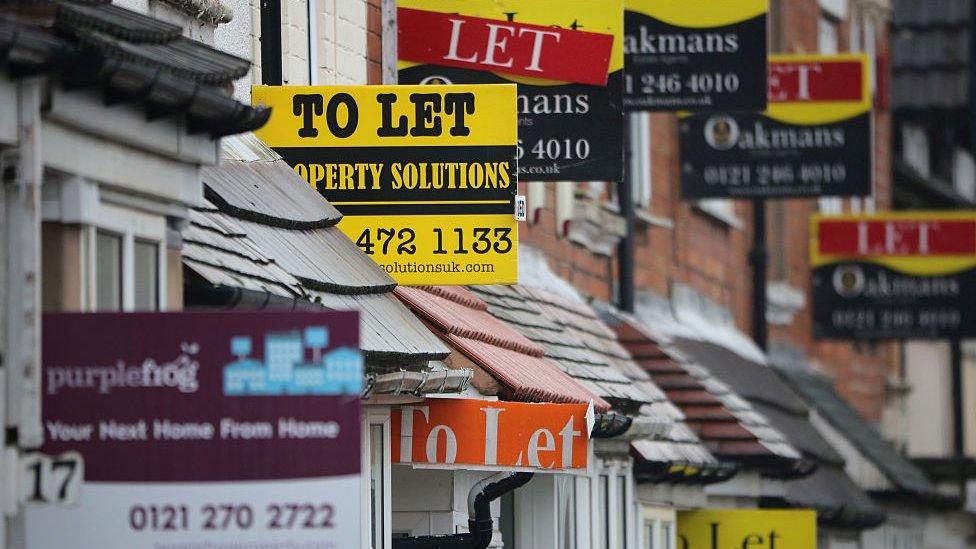Benefit claimants 'missing out' on private rentals
- Published

Benefit claimants are increasingly missing out on finding places to rent, as landlords choose tenants who are better off, surveyors have said.
Members of the Royal Institution of Chartered Surveyors (Rics) blamed the shortage of privately-rented property.
A third of those questioned said benefit claimants were losing out as a result.
They said landlords were also being put off by the benefits cap, which can reduce some payments to tenants.
The cap - set at £20,000 outside London and £23,000 in the capital - results in some claimants having their Housing Benefit cut.
'Most vulnerable'
However, some respondents to the survey said the situation would be improved if the government started a scheme to guarantee payments to landlords.
Since 2008, Housing Benefit in the private sector has been paid to the tenant, rather than the landlord.
"Worryingly our figures show that as a result of a combination of economic pressures, more and more vulnerable tenants are being pushed out of the private rented sector," said Sean Tompkins, the chief executive of Rics.
"However, if government were to put in place additional support measures through the introduction of help to rent schemes, the door to the rental market may once again be opened for Britain's most vulnerable."
In response, the government said it was determined to have a private rented sector that met the needs of both tenants and landlords.
"We're also banning letting fees, driving the worst landlords out of the market, and promoting longer tenancies on new rental properties," a government spokesperson told the BBC.